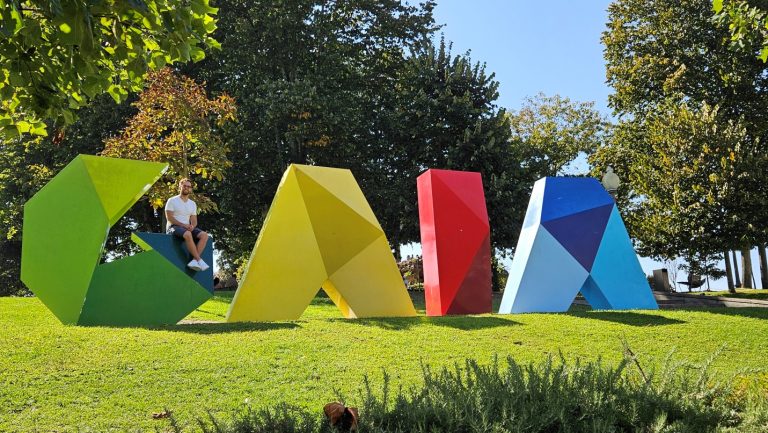By Rikke Borg Sundstrup
I had the pleasure of doing a secondment in Serbia for one month in the spring of 2024, where I was hosted by the Geographical Institute “Jovan Cvijic” SANU. Zlata Vuksanović-Macura welcomed me at the institute and introduced me to the social housing sector in Serbia and her research on social housing and the housing issues of Roma minorities. The visit provided insights into the development of social housing in Serbia that gave me interesting new perspectives on how political priorities and privatization affect the challenges of, and opportunities for, securing affordable housing today.
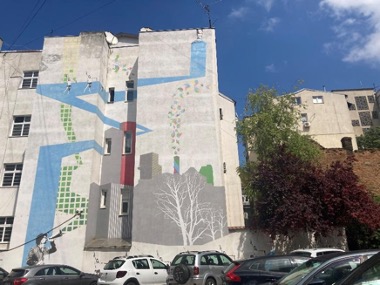
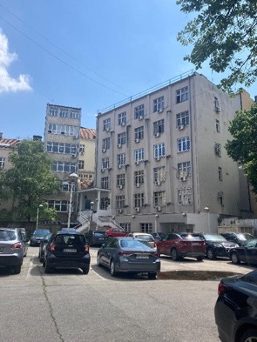
During my secondment, I was hosted by the Geographical Institute “Jovan Cvijic” SANU located in the centre of Belgrade. Credits: Rikke Borg Sundstrup
I also had the opportunity to present my PhD project Tenure Mixed Residential Estates to the researchers at the Institute. Questions, discussions and feedback presented an opportunity to learn about the different challenges surrounding affordable housing in Denmark and Serbia, as well as the influence of political priorities on the construction of affordable housing in new urban areas.
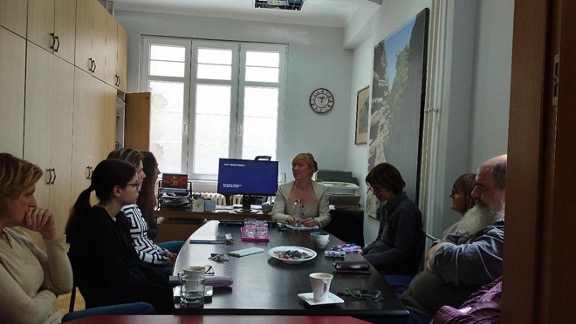
I presented my PhD project “Tenure Mixed Residential Estates to the institute”. Credits: Dejan Doljak
An excursion to the city of Čačak on 14 May – along with Zlata Vuksanović-Macura and Sónia Alves – also provided interesting insights into the challenges of, and solutions for, securing affordable housing in Serbia. Branicka Jelić, the director of the City Housing Agency of Čačak, greeted us at their office in the city center. Branicka introduced us to the housing agency and their work providing social housing for Čačak’s vulnerable citizens, such as refugees, internally displaced people, the Roma minority, and people with disabilities. She explained how they secure funding for social housing projects and described some of the challenges they are facing when it comes to continuing to ensure social housing for the vulnerable citizens of Čačak in the future.
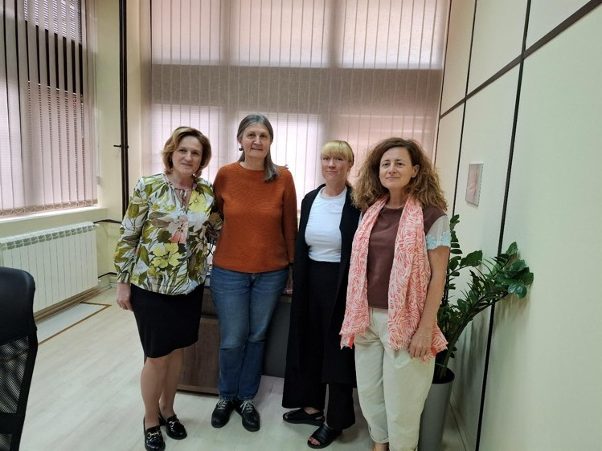
Branicka Jelić welcomed Zlata Vuksanović-Macura, Sónia Alves and me to the City Housing Agency of Čačak. Credits: CHAC
Afterwards, Branicka took us on a tour around Čačak to visit three different social housing estates. One of the residential estates housed Roma families who had previously been living in informal settlements, but through the City Housing Agency of Čačak had been given the opportunity to move into homes with decent living conditions. In another estate, we talked to a young man who was brought up in a foster family, who told us that the possibility of living in social housing with affordable rent had allowed him to focus on his family and his education.
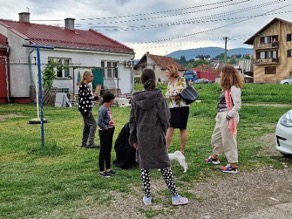
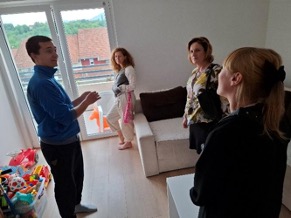
Branicka took us on a tour around Čačak, where we got to talk to some of the residents. Credits: Zlata Vuksanović- Macura
My secondment gave me insights into the development of affordable housing in Serbia, providing me with new perspectives on the contextual challenges of, and universal objectives for, affordable housing. Even though housing cultures, challenges, and housing solutions may vary between Denmark and Serbia, affordable housing in both countries can be essential for securing social mobility, opportunities on the housing market, and decent housing conditions for everyone regardless of income.
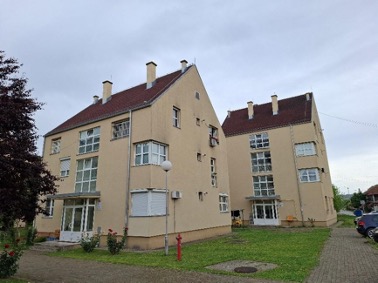
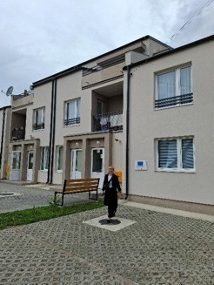
We visited different social housing estates in Čačak. Credits: Zlata Vuksanović- Macura
